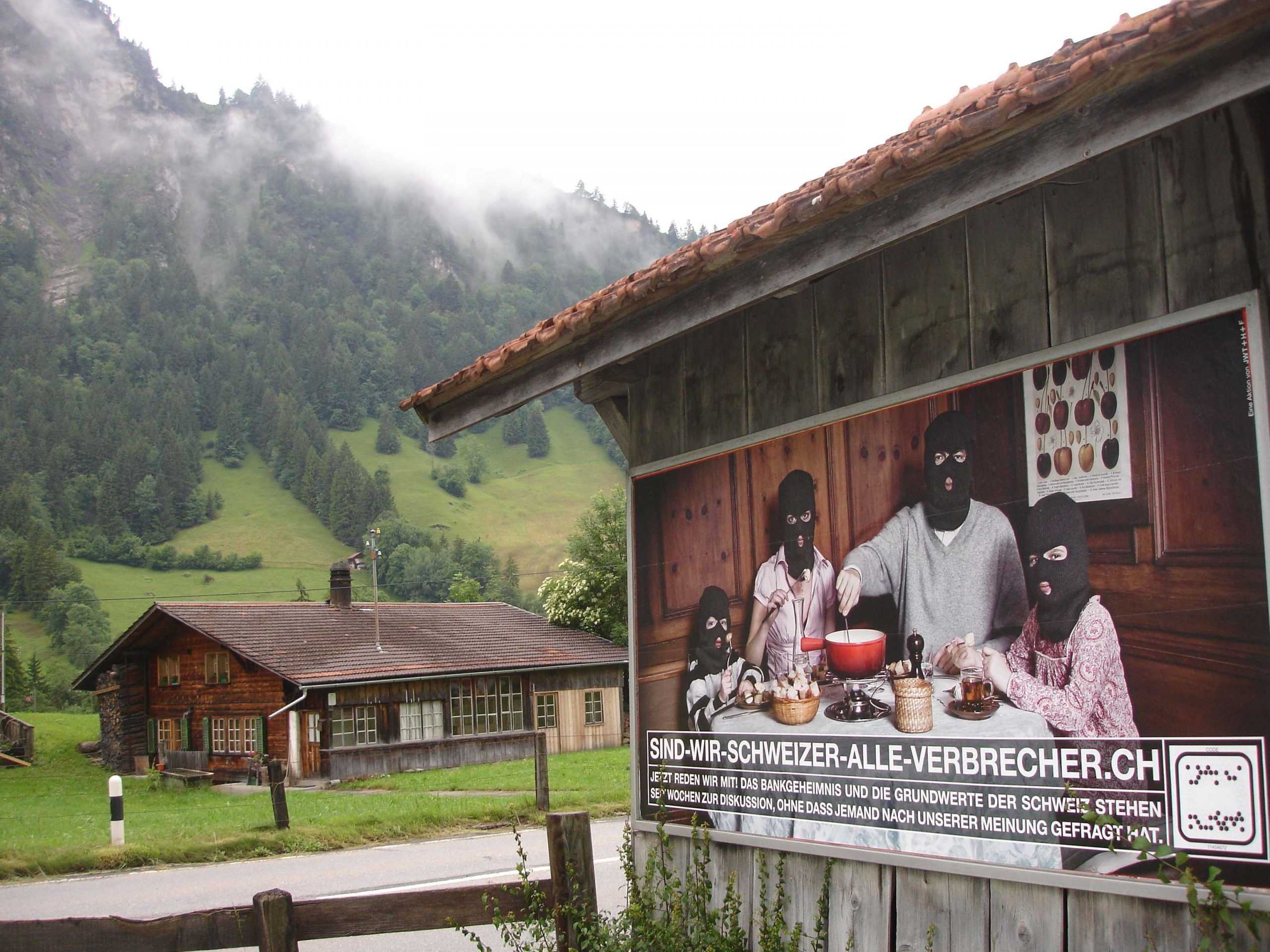
Nick Shaxson ■ Why is Davos held in the world’s top illicit money centre?

From the Davos OpenForum 2014:
“Switzerland is known for its chocolate, watches and banking sector. But today, with traditional banking secrecy gone, the country has to reinvent itself to retain its competitive advantage.”
Our emphasis added. That’s news to us. If it were remotely true, a lot of Swiss bankers would be spilling their coffee into their cufflinked shirts as they read it.
Let’s be absolutely clear about this: Swiss banking secrecy laws are firmly, resolutely intact.
These laws are being used, just for example, to hound and harrass the bank whistleblower Rudolf Elmer and his family, many years after the campaign to intimidate him began. Switzerland is continuing to act aggressively, in alliance with Luxembourg and Austria, to kill a major European transparency project, as we’ve often noted. Oh, and there’s the minor detail that Switzerland came top of our Financial Secrecy Index recently.
Switzerland has certainly made some bilateral concessions on secrecy to the United States, under severe pressure, and it’s slightly softened some elements of its banking secrecy laws, under the pressure from the OECD. But, as we said, banking secrecy remains firmly intact, particularly for developing countries which mostly don’t have access to the very limited tools that Switzerland has provided to penetrate that secrecy.
Beyond pure secrecy, we have just blogged a fascinating report which was commissioned by the Swiss development agency, then buried – take a look. Ugly and fascinating, in equal measure.
But that’s the background for what we really wanted to say today.
The Center for Global Development has an important new report out entitled Estimating Illicit Flows of Capital via Trade Mispricing: A Forensic Analysis of Data on Switzerland, showing that Switzerland’s recent emergence as a global commodity trading hub is likely to hide large illicit capital flows.
Alex Cobham explains the problem, in a nutshell:
“Commodities such as copper, gold, and oil are sold to traders in Switzerland at prices below the world market. The traders then re-sell these commodities at a steep mark-up. In most cases the goods never pass through Switzerland, nor are they processed in any way that would justify the mark-up. The traders and whomever they are in business with are thus able to reap massive profits, skimming off capital that would otherwise have gone to the original exporter.”
And of course that still-firmly-intact Swiss banking secrecy helps.
How big is the problem? The report estimates that losses from developing countries to Switzerland could be $100 billion annually, not far off the value of the entire global aid budget. That’s the higher-end estimate: to be precise, he says:
Our most conservative estimate is that developing countries lose at least $8 billion a year in illicit flows to Switzerland – more than twice the Swiss aid budget. Our highest estimate is that losses from developing countries to Switzerland exceed $100 billion a year, a number that begins to approach total annual Official Development Assistance (ODA) of about $125 billion. Furthermore we find evidence of even larger illicit flows from Switzerland to other OECD countries, potentially in excess of $500 billion a year.
So we will keep banging the drum, and others must too. Let’s keep this gigantic laundromat of the world’s dirty money on the radar screen. Britain’s Telegraph newspaper has summed it up beautifully.
Larry Elliott of The Guardian said in an excellent recent article entitled: Davos debates income inequality but still invites tax avoiders:
“Memo to self: things to pack for Davos this year – boots, woolly hat, gloves, sick bag.”
Related articles

Tax justice and the women who hold broken systems together

Malta: the EU’s secret tax sieve

What Kwame Nkrumah knew about profit shifting
The last chance
2 February 2026

The tax justice stories that defined 2025

Let’s make Elon Musk the world’s richest man this Christmas!

2025: The year tax justice became part of the world’s problem-solving infrastructure

Bled dry: The gendered impact of tax abuse, illicit financial flows and debt in Africa
Bled Dry: How tax abuse, illicit financial flows and debt affect women and girls in Africa
9 December 2025



